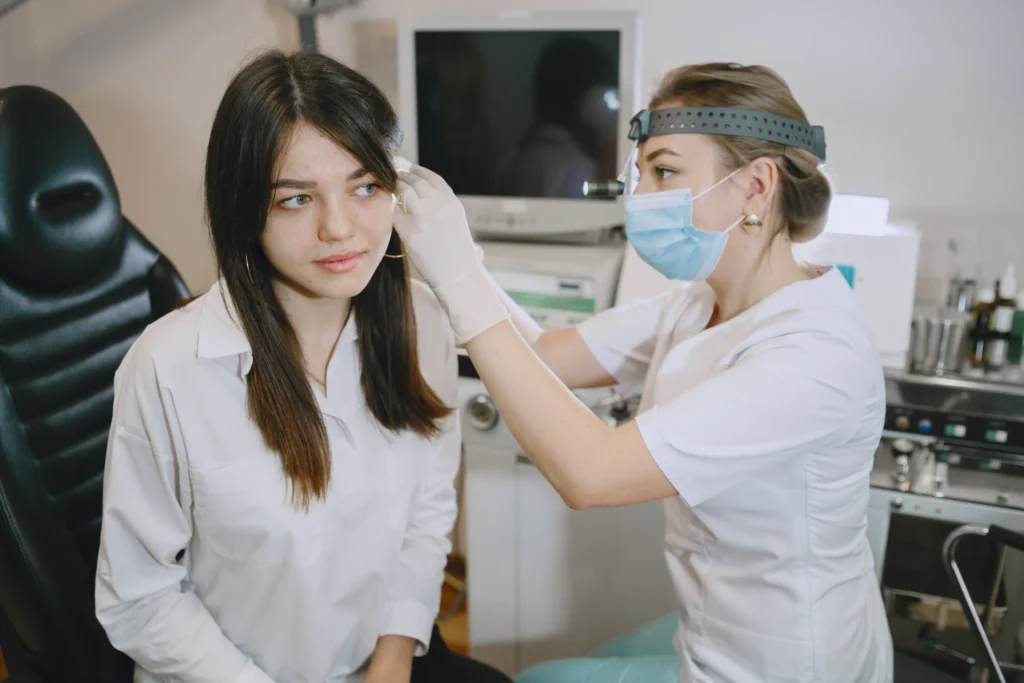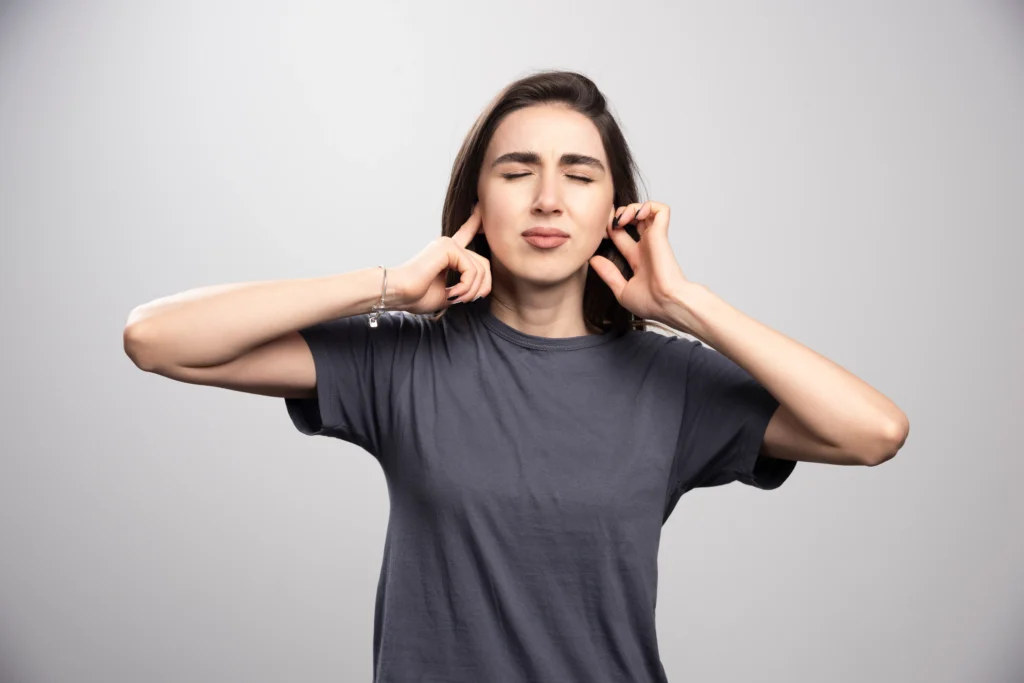Tinnitus is a common condition where individuals perceive sounds like ringing, buzzing, or humming without any external source.
While tinnitus itself isn’t a disease, it can be a symptom of an underlying condition, ranging from earwax buildup to hearing loss or exposure to loud noises. Though often harmless, tinnitus can be frustrating, especially when it interferes with daily activities such as concentration, sleep, and communication. Understanding the causes, symptoms, and relief options for tinnitus is crucial for managing the condition effectively.
This blog will help you understand the causes of tinnitus in one ear, its symptoms, and the relief options available to manage it effectively.
Contents
What is Tinnitus?
Common Causes of Tinnitus
Symptoms of Tinnitus
Relief Options for Tinnitus
When to See a Doctor
Adirondack Audiology’s Tinnitus Treatment Services
In Essence
What is Tinnitus?
Tinnitus is not a disease but a symptom of an underlying issue. It manifests as various sounds, such as a buzzing noise in ear or a ringing noise in ear, that only the affected person can hear.
For some, tinnitus may occur on intervals, for instance only occasionally, while others may experience it persistently, leading to more significant disruption in their daily lives. The severity and nature of tinnitus can differ from person to person, making it a unique and sometimes challenging condition to diagnose and treat.
Common Causes of Tinnitus
Tinnitus can develop for several reasons, including:
Exposure to Loud Noises
Prolonged exposure to loud sounds, such as music concerts or industrial machinery, can damage the inner ear.
Age-Related Hearing Loss
As people age, the natural wear and tear on the auditory system can lead to tinnitus.
Earwax Blockage
A buildup of earwax can cause temporary ear noise and interfere with hearing.
Medical Conditions
Tinnitus is sometimes linked to conditions like high blood pressure, Meniere’s disease, or temporomandibular joint (TMJ) disorders.
Hearing Loss
Often, tinnitus is associated with hearing loss, particularly in cases of tinnitus and hearing loss due to damage to the auditory nerve.
Symptoms of Tinnitus
Recognizing the signs of tinnitus can help you seek timely medical advice. Symptoms include:
A high-pitched sound in ear that occurs without an external source.
Ringing in one ear only, or sometimes both.
Intermittent or constant ringing in right ear or left ear.
Buzzing in ear, which can vary in loudness.
Sounds that worsen in quiet environments or during the night.
For some, tinnitus might start as a ringing in left ear meaning an early sign of auditory changes, while others experience it more severely as chronic tinnitus.
Relief Options for Tinnitus
While there is no universal cure for tinnitus, several relief options can help manage the condition effectively:
Sound Therapy
Using white noise machines, nature sounds, or low-level background music can mask the tinnitus sounds, providing relief.
Hearing Aids
For individuals with tinnitus and hearing loss, hearing aids can amplify external sounds, reducing the prominence of tinnitus.
Cognitive Behavioral Therapy (CBT)
CBT helps change the way you perceive and react to tinnitus, reducing its emotional impact
Medications and Supplements
While no medication can cure tinnitus, some supplements and medicines may help alleviate the symptoms for specific individuals.
Lifestyle Changes
Reducing caffeine, nicotine, and stress can often improve tinnitus symptoms. Regular exercise and maintaining a healthy diet may also contribute to overall auditory health.
Although these relief options can significantly improve symptoms, it’s important to remember that the effectiveness varies from person to person. Working with a healthcare professional can help tailor a treatment plan specific to your needs. With the right approach and support, many individuals find relief and regain control over their tinnitus.
When to See a Doctor
If you experience ringing in one ear only or any unusual ear noise, it’s essential to consult a professional.
It is important to see a doctor if you experience ringing in one ear or any unusual ear noise. You should seek medical attention if your tinnitus develops suddenly, worsens over time, or is accompanied by symptoms such as dizziness or hearing loss. Additionally, if tinnitus begins to interfere with your daily life, it is important to consult a healthcare professional to determine the underlying cause and explore appropriate treatment options.
Adirondack Audiology’s Tinnitus Treatment Services
At Adirondack Audiology, we specialize in helping individuals manage tinnitus with our expert tinnitus treatment services. Whether you are experiencing buzzing in ear or dealing with chronic tinnitus, our team of professionals is here to guide you. Using advanced diagnostic tools, we’ll identify the underlying causes of your tinnitus and create a personalized treatment plan tailored to your needs.
We understand how disruptive tinnitus can be. That is why we offer compassionate care and cutting-edge solutions to help you regain control over your auditory health. Book your evaluation now to explore the relief options available.
In Essence,
Tinnitus is a complex condition that can significantly affect your quality of life. Understanding the symptoms, such as a ringing noise in ear or a high-pitched sound in ear, and exploring relief options can make a world of difference.
If you are ready to take the next step toward better hearing and a quieter mind, schedule an appointment with us today. Relief from tinnitus is possible with the right care and support!









